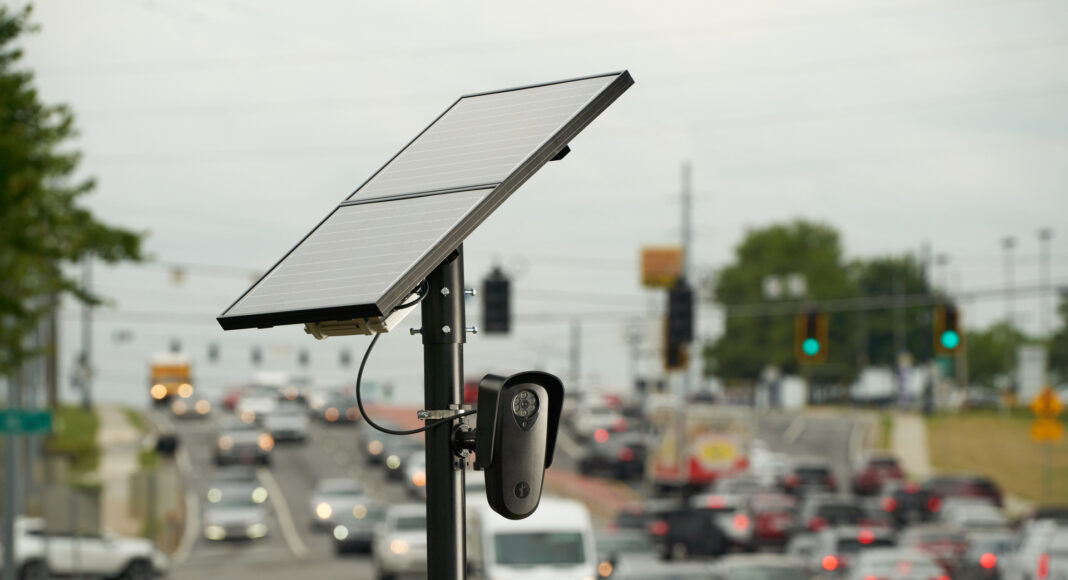In a move to protect reproductive rights in California, the Electronic Freedom Foundation (EFF) and the American Civil Liberties Union (ACLU) sent demand letters to 71 California law enforcement agencies in 22 counties last month—including Santa Clara County—urging them to comply with existing state law and stop sharing data collected by Automatic License Plate Readers (ALPR) with other states.
“The people in our community that we are talking to in the post-Dobbs era are very concerned about how law enforcement is going to use surveillance technology to punish people for obtaining abortion,” says Adam Schwartz, senior staff attorney for the San Francisco-based EFF. “Now is the time to lock this data down,” he said.
Sharing license plate data with states that have bans could affect women traveling to California for abortions and residents who assist them.
A joint letter to each department on the list of those sharing out-of-state information, called for the law enforcement agencies to release said organization’s name, ALPR data, as well as “hot lists.”
“We want police departments to unclick a box to unshare license plate data with departments in other states, and then we want them to create a share report that shows all the police departments with whom they are sharing their data,” said Schwartz. The report will show if law enforcement departments have stopped sharing the license plate data, creating accountability and communication between law enforcement and civil rights groups.
California currently prohibits law enforcement agencies from sharing information obtained in ALPR systems with out-of-state agencies as well as sharing abortion-related information. If allowed, third-party software used by police can gather information like recent locations and could be used to track patients at medical clinics. These cameras capture license plate numbers and upload the time, date and locations of the plates to large, searchable databases.
Sometimes the scans capture photos of the driver or passenger – something you know if you’ve ever been mailed a ticket with a photo of you mid-violation. Cameras are mounted on overpasses, street poles and vehicles.
EFF’s Director of Investigations, Dave Maas, says that some companies who provide the service make the information available to private investigators, allowing anti-abortion activists to continue compiling their own license plate data access.
Although this is concern to pro-choice activists, “we do not know that data in California has been used by anti-choice police departments to identify people who left an anti-choice state and came to California to enjoy our reproductive freedom sanctuary here,” said Schwartz, adding that we do know that police investigating illegal abortion in other states are aggressive and sophisticated with surveillance technologies.
“We shouldn’t have to wait for the other shoe to drop in terms of them going through the gate that is wide open here in California,” Schwartz commented about the current ease of sharing this information.
Vigilant Solutions and Flock Safety are two of the top plate-reading tech platforms used by law enforcement. Because of the cloud storage available, users can store data for long periods of time, collect and even save data on people who are not committing any crimes.
Law enforcement agencies argue that sharing this data can be used to track violent criminals, trafficking victims, child support defaulters and interstate drug dealers. They advocate for wise use and have demonstrated positive stories of ALPRs: apprehended murderers, recovered stolen vehicles and found pets.
According to the Associated Press, among those stories of misuse are an Ohio officer who pleaded guilty to stalking an ex through ALPR; a Michigan officer who looked up home addresses of women he found attractive; and two Miami-Dade officers who ran checks on a journalist after he aired unflattering stories about the department.
San Jose City Council passed a law in 2022 banning police departments from using ALPR technology to sell any license plate data, using that information for investigating a person’s immigration status or monitoring legally-protected activities like protests or rallies.
The San Jose Police Department website features a flock safety transparency portal detailing their policies and procedures for this data. SJPD’s posted policy on ALPRs limits sharing to specific law enforcement purposes. Data can be kept for 12 months or “the length of time required by the Department for official purposes – whichever is shorter.”
Gilroy was the only South Bay department named in the report.



